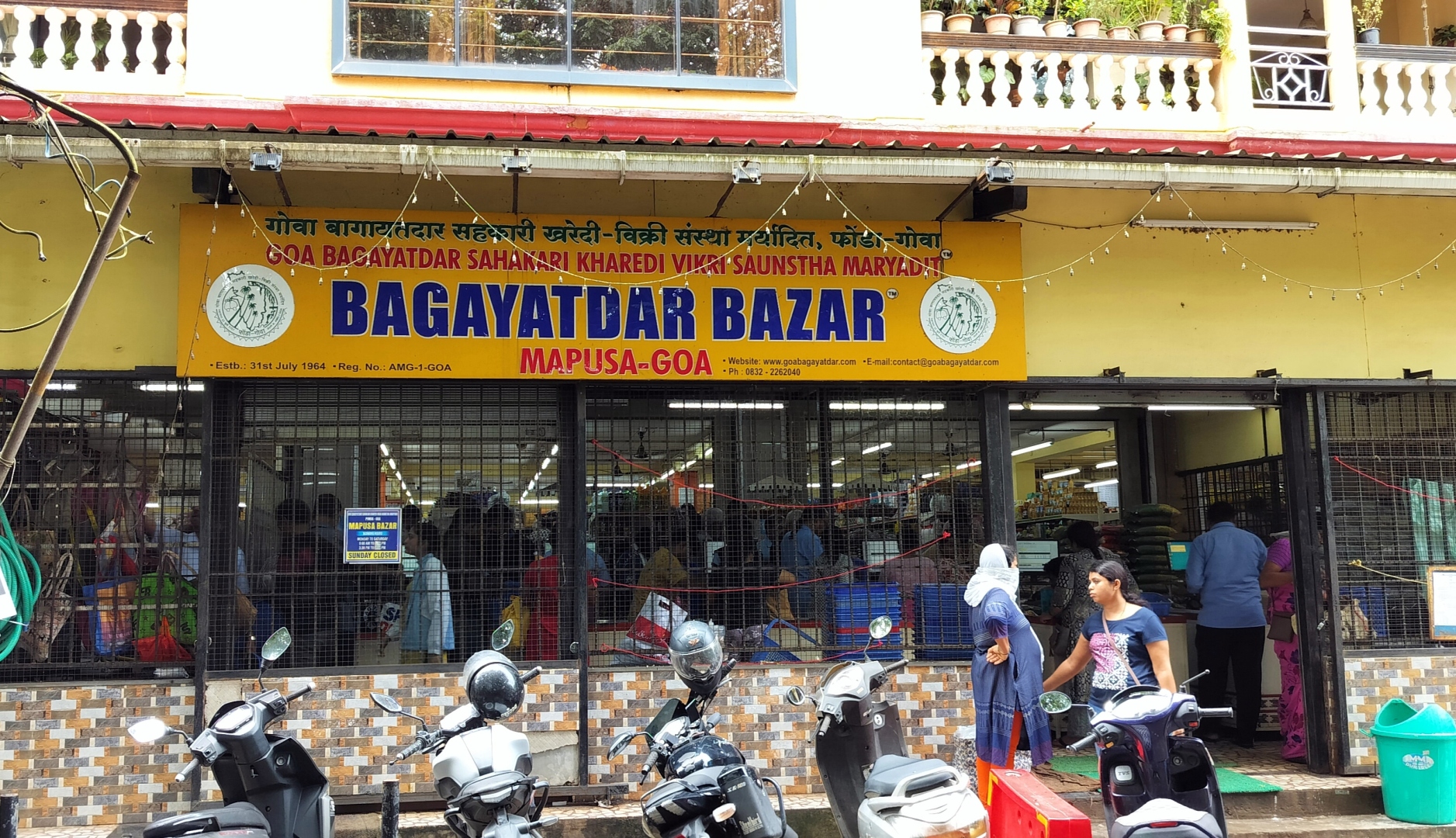
MAPUSA
The operations of Goa Bagayatdar Bazaar, a popular commercial establishment in Mapusa, have come under scrutiny due to alleged illegal extensions carried out in the building from where it operates its business.
Despite clear orders for demolition of the illegal extensions, the case has been entangled in legal and bureaucratic delays, largely attributed to the influence of powerful political figures associated with the Bazaar and the building owner.
BACKGROUND
The controversy began two years ago when Sitaram Sawal, then Chief Officer of Mapusa Municipal Council, ordered the demolition of all illegal extensions at the Raj Raunak building in Shetya-vaddo, where Goa Bagayatdar Bazaar operates.
Sawal’s significant order directed Rajmi Narvekar, the building owner, and Goa Bagayatdar Bazaar to remove an illegally erected mezzanine floor on the ground floor and two unauthorised sheds in the front and rear setbacks.
LEGAL, POLITICAL MANOEUVRING
Rajmi Narvekar challenged Sawal’s order before the Administrative Tribunal, where the case has languished for two years. Following Sawal’s transfer, his successor, Amitesh Shirvoikar, issued a conditional trade license to Goa Bagayatdar Bazaar, allowing its business activities to continue.
The condition stipulated that operations must be confined to the legitimate area of 85 square meters, a condition that has reportedly been ignored.
The current Chief Officer, Chandrakant Shetkar, is now responsible for adjudicating the issuance of a regular trade license to Goa Bagayatdar Bazaar.
However, Shetkar has been accused of using bureaucratic tactics to delay the decision, further prolonging the case.
COMPLAINTS, INSPECTIONS
The struggle to expose the alleged illegalities began over four years ago when locals Siddhi Naik and Jawaharlal Shetye filed complaints with the Mapusa Municipal Council regarding the encroachment of open space and areas reserved for parking.
Subsequent inspections by the Mapusa civic body and the North Goa Planning and Development Authority (NGPDA) confirmed the illegal constructions.
Inspection reports revealed that a mezzanine floor had been erected across the entire ground floor without permission, and sheds were constructed in the front and rear setbacks, violating the approved plans.
Despite these findings, Narvekar was given an opportunity to regularise the mezzanine floor by obtaining the necessary approvals from the NGPDA, which did not happen.
DELAYS
The complainant Siddhi Naik alleges that instead of seeking the requisite approvals, Narvekar and her associates have used their influence to delay proceedings. Frustrated by the lack of progress, Naik approached the High Court through a writ petition.
The High Court subsequently directed the Mapusa civic body to expedite the proceedings and prioritise the matter.
CURRENT STATUS
Despite the High Court’s directive, the case remains unresolved.
The influential connections of Narvekar and the Bazaar’s chairman, an influential politician from the ruling BJP, are seen as significant factors in the delay.
Locals and complainants continue to await justice, as the legal and bureaucratic hurdles persist.
The case of Goa Bagayatdar Bazaar highlights the challenges of enforcing municipal regulations in the face of political influence and bureaucratic inertia.